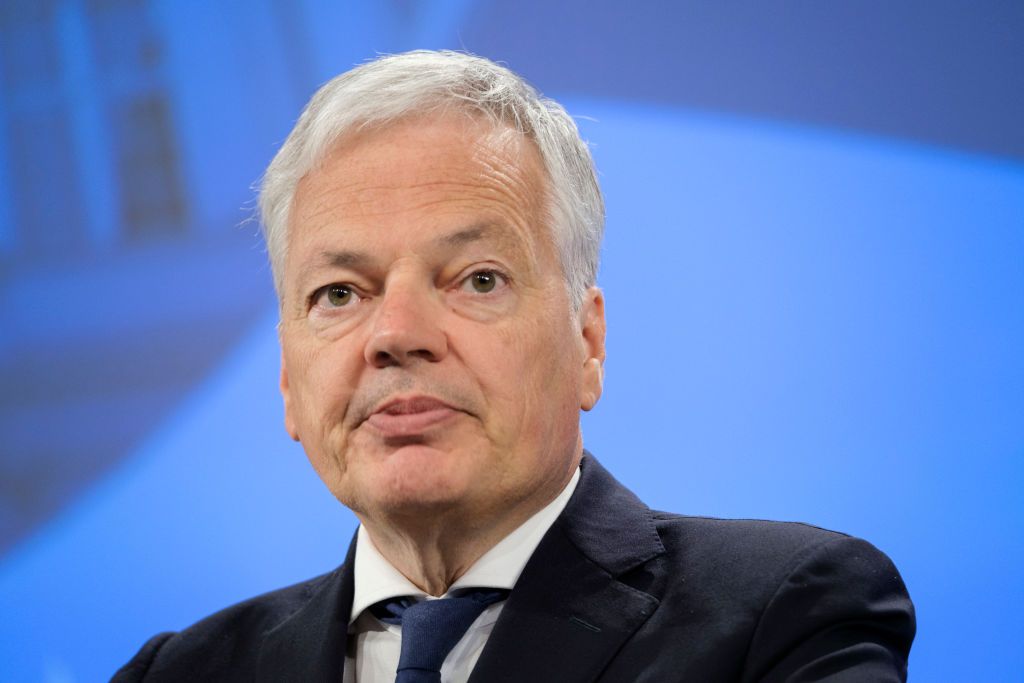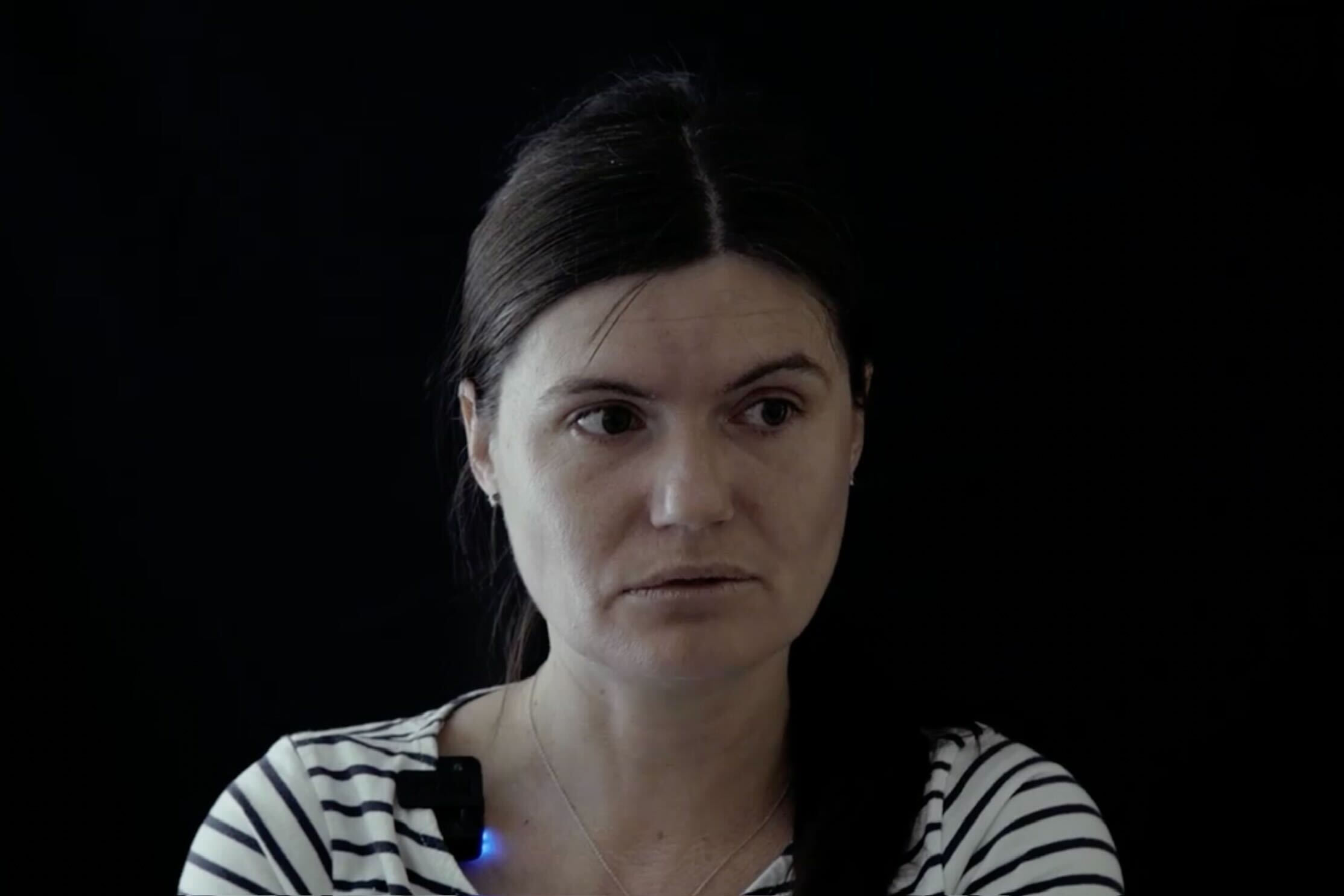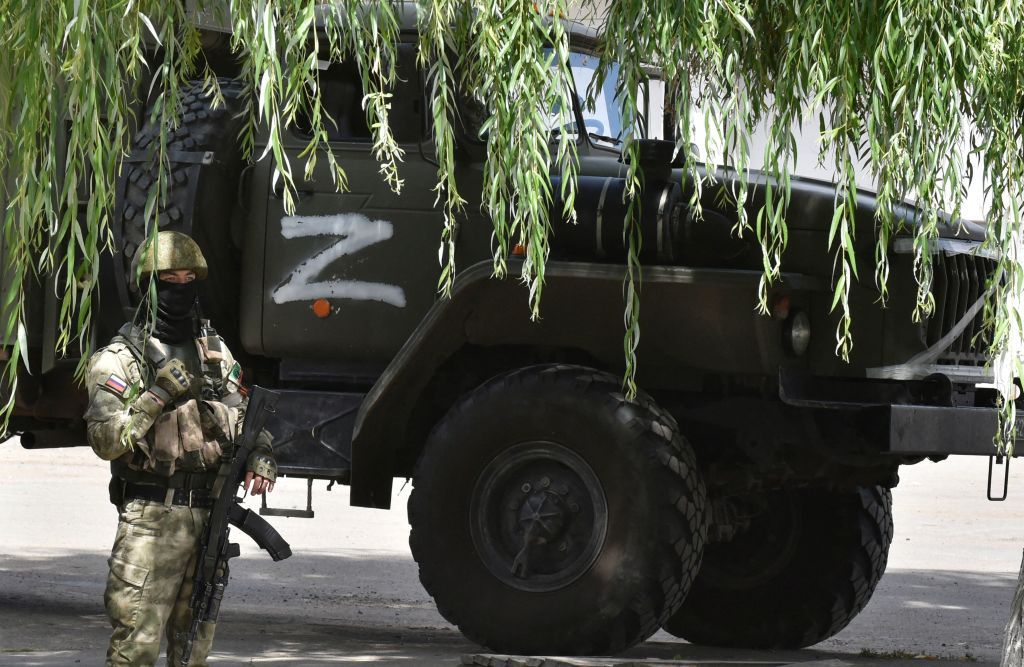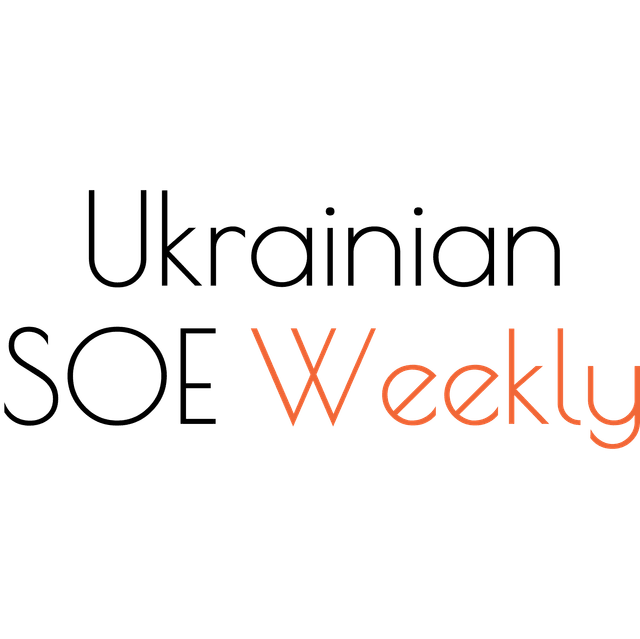Ukrainian State-Owned Enterprises Weekly – Issue 92

Editor’s Note: This is issue 92 of Ukrainian State-Owned Enterprises Weekly, covering events from June 9-16, 2023. The Kyiv Independent is reposting it with permission.
Ukrainian SOE Weekly is an independent weekly digest based on a compilation of the most important news related to state-owned enterprises (SOEs) and state-owned banks in Ukraine. This publication was produced with the financial support of the European Union within the project “Supporting Ukraine in rebuilding and recovery” implemented by the KSE Institute. The contents of this publication are the sole responsibility of the editorial team of the Ukrainian SOE Weekly and do not necessarily reflect the views of the European Union.
Corporate governance of SOEs
The Verkhovna Rada prefers an alternative bill on corporate governance of GTSOU over the government’s bill. On June 10, the Verkhovna Rada rejected Draft Law No. 9311 that would establish a one-off procedure for the merger of the Gas Transmission System Operator of Ukraine (GTSOU) and the Main Pipelines of Ukraine (MGU). This bill, proposed by the Cabinet of Ministers on May 19, was criticized for not meeting Ukraine’s commitments to the IMF. (See our Issue 89 for details.)
Instead, the parliament supported sending an alternative draft law (No. 9311-1) for revision and re-submission to the Rada. This bill was proposed by lawmakers Maksym Khlapuk (Voice faction), Yaroslav Zheleznyak (Voice), and other lawmakers. The law was drafted by two members of the SOE Weekly team, Oleksandr Lysenko and Andriy Boytsun.
There were four alternative versions of this legislation. According to Zheleznyak, the Energy Community Secretariat sent a letter to the Verkhovna Rada’s energy committee, saying that Draft Law No. 9311-1 was the best one of the bunch.
As we reported in SOE Weekly (Issue 89), Draft Law No. 9311-1 corrected the shortcoming of the government’s bill and aimed to help Ukraine meet its commitments to the IMF and other international obligations. If the parliament adopts Draft Law No. 9311-1 in a single plenary session of the Rada in the coming weeks, this will help the government to stay on track with meeting the deadline of the IMF’s structural benchmark for GTSOU.
In Issue 82, we reported that the IMF’s current $15.6 billion Extended Fund Facility (EFF) programme for Ukraine set a structural benchmark for GTSOU, on top of other requirements. Specifically, Ukrainian authorities have committed to implementing the following steps:
- Transfer all shares of GTSOU from MGU to the Ministry of Energy and adopt GTSOU’s new charter, which was developed and agreed upon with the Energy Community Secretariat, by the end of July 2023 (structural benchmark);
- Select and appoint a supervisory board for GTSOU by the end of October 2023;
- Subsequently, appoint a new CEO and eventually liquidate MGU.
Note also that the conditions of the IMF programme may change following a recent IMF review. On May 30, the IMF staff and the Ukrainian authorities reached a staff-level agreement on an updated set of economic and financial policies under the EFF programme. The staff-level agreement is subject to approval by the IMF Executive Board.
For more detail about Draft Laws No. 9311 and 9311-1, see SOE Weekly’s Issues 88 and 89.
Meanwhile, lawmakers from the Batkivshchyna faction have registered two more alternative draft laws – Draft Law No. 9311-2 (proposed by MP Oleksiy Kucherenko on May 26) and Draft Law No. 9311-3 (proposed by MPs Yulia Tymoshenko and Serhiy Vlasenko on June 2).
On June 10, Draft Law No. 9311-2 was withdrawn. The Rada also received a request to withdraw Draft Law No. 9311-3, and its consideration was postponed.
GTSOU looks for a head-hunting firm to find independent candidates for its supervisory board. On June 15, GTSOU announced a Prozorro tender to procure the services of a company to find candidates for independent supervisory board members.
The deadline for submitting proposals is June 29 and the bidding is scheduled for June 30.
The Prozorro tender works in two rounds. In the first round, proposals are submitted according to the terms of the procurement notice, and candidate firms are selected for the second round. In the second round, the selected firms make bids. The winner is decided based on the lowest bid.
According to GTSOU’s procurement notice, the expected value of the head-hunting services is Hr 2 million (around 50,000 euros), excluding VAT.
This means that the bidding in the second round starts at Hr 2 million, and the bids can increase during the bidding.
The deadline to find board candidates is Jan. 31.
As we described in the previous item, according to the current IMF programme, a new supervisory board of GTSOU must be appointed by the end of October 2023. Note that, as of now, the deadline of Jan. 31 does not prevent the head-hunters from finding board candidates earlier.
Ukroboronprom’s corporatization still blocked. According to the think tank StateWatch, the transformation of the State Concern Ukroboronprom into a joint-stock company called Ukrainian Defense Industry, required by the Cabinet’s resolution of March 21, remains blocked.
StateWatch said that clauses that allowed the new company to be registered were deleted from the draft resolution before it was approved at a government meeting. These included:
- A clause designating Yurii Husiev (Ukroboronprom’s current CEO) as the acting CEO of the new company until a permanent CEO is appointed.
- A clause instructing Husiev to have Ukroboronprom’s dissolution and the establishment of the new company registered. This clause also instructed Husiev to register the issue of the new company’s shares with the National Securities and Stock Market Commission (NSSMC).
As of mid-June, there was no information about a joint-stock company called Ukrainian Defense Industry in the state registry, StateWatch added.
According to the think tank’s sources in the government, the Cabinet of Ministers is now trying to decide who should register the new defense company and what law it should be based on. Later, StateWatch cited a response by the Ministry of Strategic Industries in reporting that the ministry did not know when the transformation of Ukroboronprom would start.
The ministry confirmed that the registration of the Ukrainian Defense Industry would be carried out after the government figures out who is supposed to have the new company registered, but it did not provide any details on when this would happen.
In SOE Weekly (Issue 87), we reported that on May 4, the Cabinet of Ministers published its resolution to convert the State Concern Ukroboronprom into a joint-stock company called Ukrainian Defense Industry. (See Issue 87 for detail.)
As SOE Weekly reported in its Issue 80, the Cabinet said in a press release that it approved the corporatization of Ukroboronprom on March 21. In Issue 83, we reported that the corporatization had not yet begun: The government resolution was not public yet.
The concept of corporate governance reform and conversion of Ukroboronprom, including its target model and detailed action plan, was drafted by Andriy Boytsun, Oleksandr Lysenko, and Dmytro Yablonovskyi, members of the SOE Weekly team, as well as the international law firm Kinstellar, in March 2020. For a discussion of these documents, see the OECD Review of the Corporate Governance of State-Owned Enterprises in Ukraine.
In Issue 59, we reported that in July 2021, the Verkhovna Rada adopted Law 1630-IX (previously known as Draft Law No. 3822) which laid the groundwork for Ukroboronprom’s transformation.
On Dec. 9, 2021, the Cabinet of Ministers approved resolutions and ordinances to convert Ukroboronprom into a joint-stock company. The Cabinet also approved the conversion of Ukroboronprom’s 43 uncorporatized enterprises into joint-stock companies or limited liability companies fully controlled by the state.
OECD launches a four-year Country Programme that will support Ukraine’s reform agenda, which encompasses SOEs. On June 7, the Organization for Economic Co-operation and Development (OECD) and the government of Ukraine launched a four-year Country Programme that will support Ukraine’s reform, recovery, and reconstruction agenda, as well as help the country to advance its ambitions to join the OECD and the European Union.
The programme includes several projects related to SOEs.
- Capacity building to support the implementation of OECD recommendations following national review of SOE governance. The OECD’s 2021 Review of the Corporate Governance of State-Owned Enterprises in Ukraine resulted in detailed recommendations for reform priority areas.
Based on this, the project would provide targeted technical assistance to the Ministry of Economy and National Securities and Stock Market Commission (NSSMC) toward implementing best practices in areas including:
- Centralizing the state’s ownership function;
- Enhancing accountability and transparency in setting and monitoring SOE objectives;
- Improving disclosure; and
- Professionalizing and enhancing the autonomy of SOEs’ supervisory boards.
- Improving financial market and corporate governance for post-war recovery. A strategy for the development of Ukraine’s public and private capital markets is critically important to attract foreign investment and support the growth of domestic finance necessary to fuel a sustainable recovery for Ukraine, the OECD programme says.
According to the programme, this requires a comprehensive assessment of Ukraine’s current legal, regulatory, and institutional framework that define how its capital markets function and how well they align with OECD standards, including various OECD guidelines on corporate governance, pension regulation, and financial consumer protection. Among others, the assessment should include evaluating the potential for the listing of SOEs.
- Review of integrity and anti-corruption measures. Ukraine has expressed interest in support for its anti-oligarch reforms. This would require assessing policy capture risks; public procurement, SOEs, and competition issues; as well as responsible business conduct and risk-based due diligence practices across both state-owned and private companies.
Energy
EU considers storing part of its gas in Ukraine’s storage facilities. According to Bloomberg, the EU is considering the possibility of storing gas in the Bilche-Volytsko-Uherske underground storage facility in Lviv Oblast and other gas storage facilities in Ukraine, when demand and gas prices increase in winter.
The gas storage facilities in the EU are more than 70% full and are expected to reach their limits by early September, Bloomberg wrote.
According to the media, this initiative is part of an effort to avoid a repeat of the panic that led to record gas prices and government intervention in the EU in 2022.
One of the storage facilities under consideration is Bilche-Volytsko-Uherske in Lviv Oblast, which can store four times as much natural gas as the largest storage facility in Germany and is easily connected to EU networks thanks to Ukraine’s decades-long role as a transit route for Russian sources of energy, Bloomberg said.
According to the German company RWE AG, which has used Ukrainian storage facilities in the past, Ukrainian storage facilities can help balance supply and demand during the second half of the summer of 2023.
Ukraine’s facilities sit 2,000 meters underground and can store more than 30 billion cubic meters. The gas storage operator Ukrtransgaz, a Naftogaz subsidiary, provides one-third of this capacity for use, equivalent to about 10% of EU demand in the fourth quarter of 2022, Bloomberg added.
According to the media, with the insurance industry staying away from Ukraine, the extent to which traders are willing to stockpile gas in Ukraine depends on prices and whether the EU is willing to provide support.
According to the Gas Transmission System Operator of Ukraine (GTSOU), Ukraine offers European traders more than 10 billion cubic meters of underground gas storage facilities located near its western border. A flexible and reliable gas transmission system provides more than 100 transportation routes between the facilities and the European borders, the company added.
In April 2023, Naftogaz’s CEO Oleksiy Chernyshov also said that Naftogaz was ready to offer Europe gas storage capacities sufficient to store 10 billion cubic meters of gas.
Infrastructure
Ukrzaliznytsia to receive a 200 million euro loan from the EBRD. On June 9, Ukrzaliznytsia reported that it had signed a 200 million euro loan agreement with the European Bank for Reconstruction and Development (EBRD) as part of the Emergency Support to Ukrainian Railways project.
According to Ukrzaliznytsia, the loan will have a maturity of up to 15 years, including a grace period of up to three years.
Half of the loan would be used to finance capital expenditures of Ukrzaliznytsia, including the restoration of railway corridors with the European Union, as well as the renewal of rolling stock.
The other half would ensure stable and uninterrupted rail freight and passenger traffic, the company said.
In addition, Ukrzaliznytsia could get grants of up to 10 million euro to finance investments into station accessibility, such as the installation of elevators and ramps, the purchase of communication equipment, energy-efficient lighting, and similar amenities.
In SOE Weekly (Issue 88), we reported that Prime Minister Denys Shmyhal announced on May 12 that the EBRD would provide 200 million euros (apparently, as a loan) to rebuild Ukraine’s railways.
In Issue 91, we reported that Ukrzaliznytsia would also receive a 6.7 million euro grant from the European Investment Bank (EIB) to support the company’s operations during Russia’s full-scale war against Ukraine.
In Issue 90, we reported that Ukrzaliznytsia would receive a $25 million grant from the World Bank.
In Issue 72, we reported that Ukrzaliznytsia took losses of Hr 10.8 billion ($295 million) in 2022. The loss from passenger transportation was Hr 13.3 billion ($364 million), suggesting that the company’s other segments, such as cargo transportation, made a profit of Hr 2.5 billion ($68 million).
Ukrzaliznytsia also expected to lose Hr 20.2 billion ($552 million) in 2023 due to the large social burden and restrictions on cargo transportation.
In Issue 68, we reported that after Russia’s full-scale invasion, the Ukrainian government gave Ukrzaliznytsia new responsibilities. We also detailed the financial support that the government, Ukrgasbank, and international partners provided to Ukrzaliznytsia throughout 2022.
Confiscation of the aggressor state’s assets, nationalization, and asset seizure
Ukrnafta signs agreements to manage Ukrnaftoburinnia assets on ARMA’s behalf. On June 14, Ukrnafta reported that it signed agreements with the Asset Recovery and Management Agency (ARMA), under which Ukrnafta would manage the corporate rights of four companies: PrJSC Ukrnaftoburinnia, East Europe Petroleum LLC, Sakhalinske LLC, and Sirius-1 LLC.
According to Ukrnafta, these companies produce oil and gas in the Sakhalin hydrocarbon field. Their assets were seized in a recent criminal case brought against Ukrnaftoburinnia.
According to the registry, Ukrnaftoburinnia’s ownership is split between Ares Systems Ltd (22.49%), Deripon Commercial Ltd (22.49%), JKX Ukraine B.V. (10%), and Ariana Business Limited (22.49%). According to the media, the company is associated with businessmen Ihor Kolomoisky, Pavlo Fuks, and Vitaliy Khomutynnik.
Ukrnaftoburinnia is one of the largest private gas producers in Ukraine, extracting 725.4 million cubic meters in 2021. According to Ekonomichna Pravda (EP), its 2021 net profit was Hr 5.65 billion ($154 million). In 2022, this fell to Hr 3.77 billion ($103 million).
Ukrnafta said that it would start managing the assets after receiving a merger clearance from the Anti-Monopoly Committee of Ukraine (AMCU), which Ukrnafta and ARMA applied for on June 1.
In SOE Weekly (Issue 90), we reported that the Cabinet of Ministers approved the proposal of ARMA and the Ministry of Defense to transfer the corporate rights of Ukrnaftoburinnia to Ukrnafta.
In Issue 84, we reported that ARMA received all shares of Ukrnaftoburinnia after the asset was seized on April 7. The shares were seized in connection with a criminal investigation into the development of Ukraine’s largest explored gas field, the Sakhalin, in Kharkiv Oblast. See more about this case in Issue 84.
In Issue 86, we reported that Ukrnafta’s CEO Sergii Koretskyi asked the Ministry of Economy to hand the corporate rights of Ukrnaftoburinnia to Ukrnafta.
















